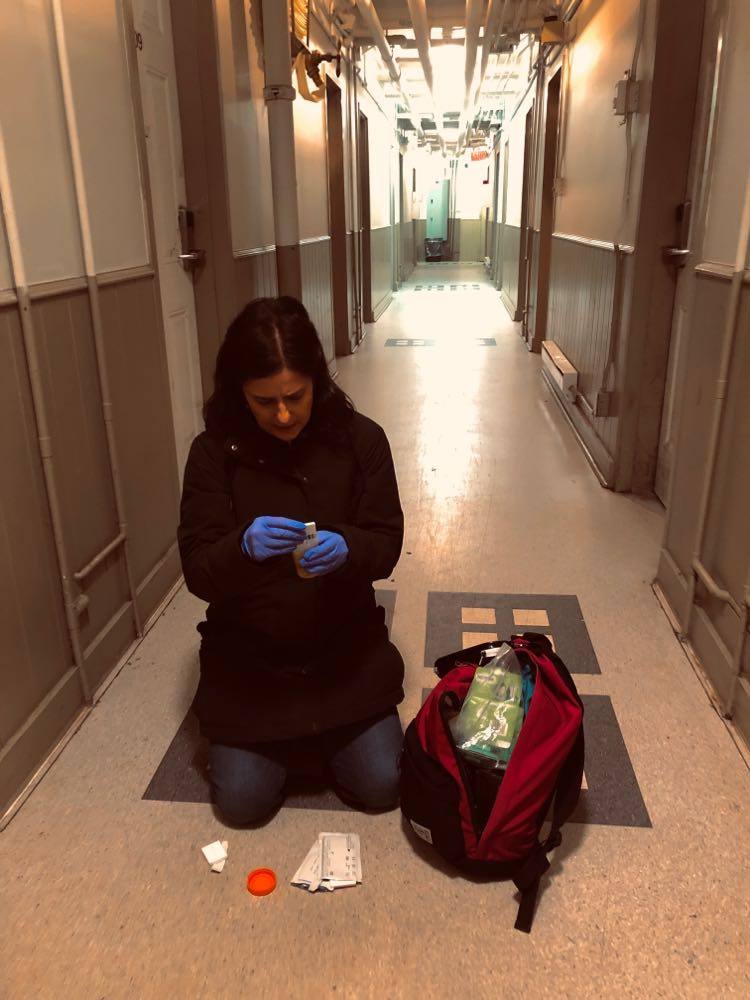Providence Health Care’s opioid agonist therapy program is adapting to the COVID-19 pandemic by using virtual health to connect with the most vulnerable patients.
Keren Mitchell opens her computer and signs in to her Zoom account, preparing for yet another busy day. As the prescriber for outreach opioid agonist therapy (OAT), Keren supports vulnerable youth (ages 12-24) who use opioids, and sometimes their families, in Vancouver’s urban core.
A typical day for Keren includes taking a backpack of supplies and going into single room occupancy sites and youth centers, and searching the streets for youth on her caseload. Now with COVID-19, that routine has changed, but Keren and her team have found new ways to stay connected with patients.
“Due to COVID-19, we realized we needed to make a shift and we needed to do so quickly so our patients could get the support they need.”
The youths Keren supports have multiple concerns. These typically include substance use and additional medical conditions, which can interfere with their ability to keep appointments.
Keren decided to start a Pandemic Withdrawal Management (PWM) program by telehealth. By offering pharmaceutical alternatives to illicit drugs, people can now stay home and socially distance, rather than going out to get the drugs.
As a result of telehealth, Keren and her team have been able to increase the number of patients seen and treated. It is also possible to have three-way calls with Dr. Pouya Azar, the addiction psychiatry lead for Foundry. This has been helpful because the pandemic program is new and the number of youth under age 15 needing addiction care is increasing — they are particularly complex because of their young age and other factors. The team has also worked closely with BC Children’s Hospital so that youth can be seen for addiction assessment and start treatment immediately on discharge.
At this time, the team is exploring options to make the virtual calls possible without requiring the patients to have specific forms of technology. For example, the Foundry team at Inner City Youth is looking at installing secure tablets in SRO buildings.
Keren also gave kudos to the SRFax Service technology — a secure email-to-fax service available for use for Providers (Physicians and Nurse Practitioners) who need the ability to prescribe remotely during the COVID-19 crisis. Keren adds, “Thanks to the new SRfax app, I have been able to send prescriptions securely.”
Keren Mitchell is optimistic the virtual health platform will continue after COVID, in conjunction with in-clinic appointments. “This will extend Foundry’s reach to young people who are not near a Foundry location, or who need specialized addiction care that isn’t accessible to them otherwise.”





